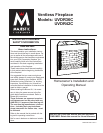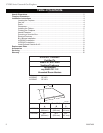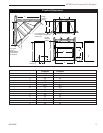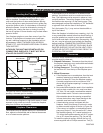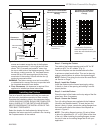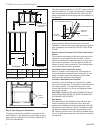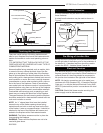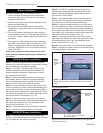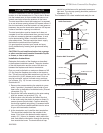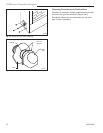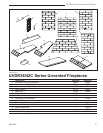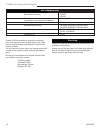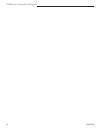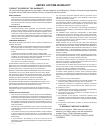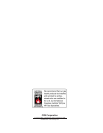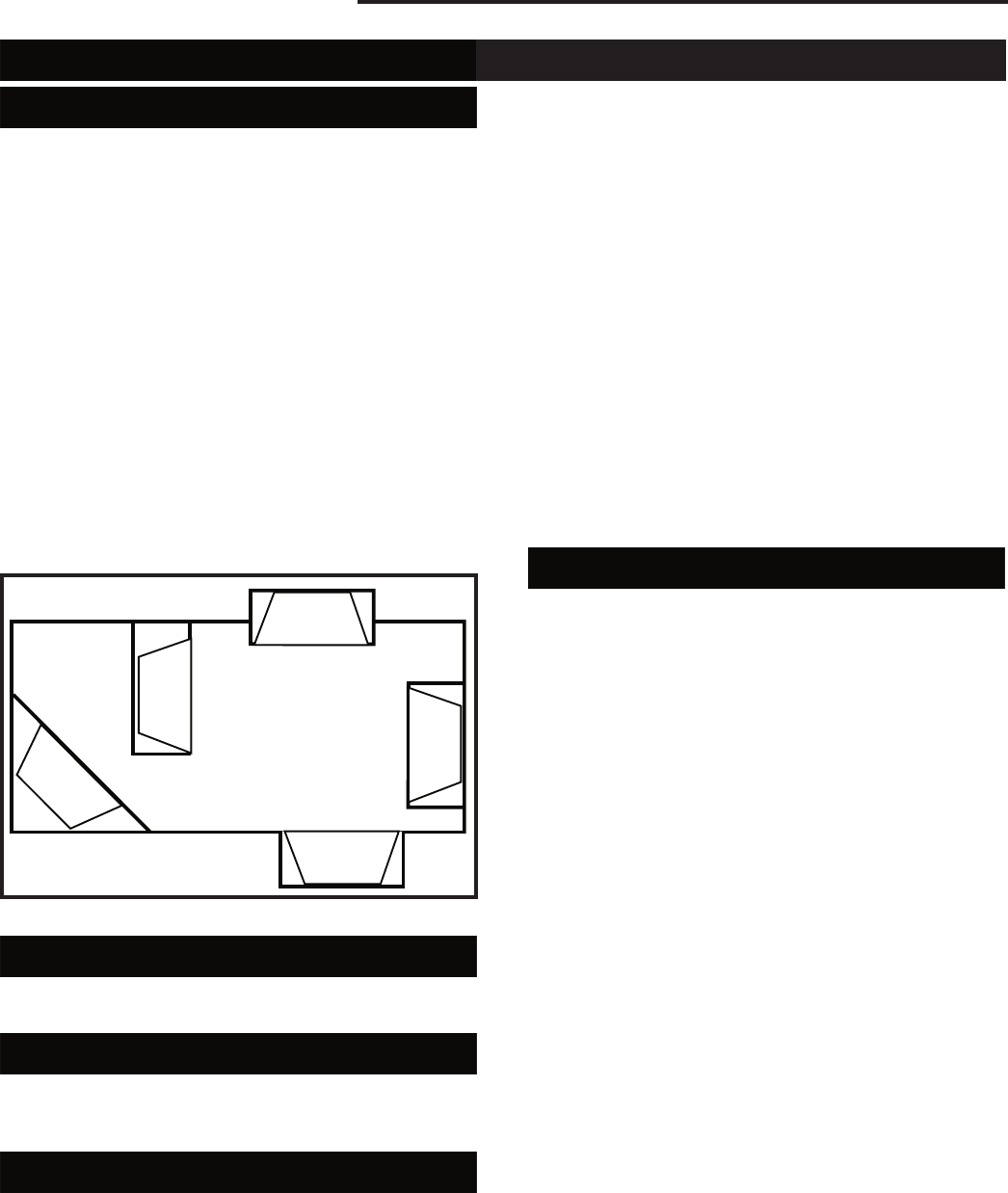
4
UVDR Series Unvented Gas Fireplaces
20007469
Locating the Fireplace
Figure 2 shows some of the many ways your fireplace
may be installed. Consider the traffic pattern in your
room and the location of doors and windows. Moving
air from ceiling fans, open doors and hot air grilles may
cause the flames to soot. If a disturbance is found that
effects the flames, it must be eliminated by turning off
the ceiling fan, closing the door or closing or moving
the hot air register. A corner location may be best where
space is limited.
Your fireplace weighs no more than some of your fine
furniture. If the fireplace is located near a load bear-
ing wall, additional supports to the foundation will not
be necessary. HEAVY FACINGS SUCH AS BRICK,
STONE, ETC., MAY REQUIRE ADDITIONAL FOUNDA-
TION SUPPORT.
ALTHOUGH THIS UNIT MAY BE INSTALLED ON
COMBUSTIBLE SURFACES, IT MUST NOT BE IN-
STALLED ON CARPET OR VINYL.
Room Divider
Partial Room
Projection
Full Room
Projection
Flush
Corner
T224
place fireplace
2/04
T224
Fig. 2 Locating the fireplace.
Gas Line
The gas line must be installed before framing in the fire-
place by a licensed gas line installer.
Drafts
Do not locate the fireplace in high traffic areas or areas
exposed to high drafts and winds. Locate the fireplace
away from furniture and draperies.
Fireplace Clearances
The fireplace may be placed directly on a combustible
floor, against a combustible wall at marked clearances
or on a raised wooden platform.
If the fireplace is to be installed on a raised wooden
platform, the platform must be a continuous level sur-
face. The fireplace must be secured in place so it can-
not shift positions. The nailing flanges on the sides of
the firebox make securing it to the framing easy. They
were designed to allow the installation of 1/2” wallboard
or plywood flush with the face of the fireplace.
Only the header (Fig. 1) may rest on the standoffs on
top of the firebox.
When the fireplace is installed over carpeting, vinyl, tile
or any combustible material other than wood flooring, it
must be installed on a metal or wood panel extending
its full width and depth. Alternatively, the carpeting, vinyl
tile, etc., may be removed from beneath the fireplace
before installing. COMBUSTIBLE MATERIALS MUST
NOT BE INSTALLED OVER OR TOUCH ANY BLACK
PAINTED SURFACE. DO NOT BLOCK HEAT CIRCU-
LATING AIR OUTLETS. DOING SO MAY RESULT IN
POTENTIAL FIRE HAZARD.
Clearances
To ensure a safe installation the following instructions
must be carefully observed.
1. Sidewall Clearances: Clearances from the side of
the fireplace opening to any combustible wall should
not be less than 5”. (Fig. 3a)
2. Ceiling Clearances: The ceiling height should not
be less than 42” from the top of the fireplace open-
ing.
3. Mantel Clearances:
a. If the fireplace has no mantelpiece, then the heat
resistant material must extend upwards a dis-
tance of at least 9¹⁄₂" from the fireplace opening.
A mantel projection must be a minimum of 24”
above the top fireplace opening if a canopy is not
installed. (Fig. 3b)
b. Noncombustible materials used in this installation
such as slate, marble, tile, etc. must be at least
1/2" thick. Do not install a combustible material
behind sheet metal. Failure to use noncombus-
tible materials above the opening as specified
in these instructions may cause damage to the
materials used and create a fire hazard.
c. A heat reducing canopy is shipped with the
fireplace. Use of this canopy is optional in order
to reduce mantel heights as shown in Figure 3d.
If the canopy is installed, a combustible mantel
piece may project 2" from the wall at 6¹⁄₂" above
the fireplace opening. A 6" mantel projection at
13" above the fireplace opening and a 10" projec-
tion at 22" above the opening. (Fig. 3a and 3d)
To install the optional canopy, remove the four (4)
screws supplied with a Phillips screwdriver. Two (2)
Installation Instructions



